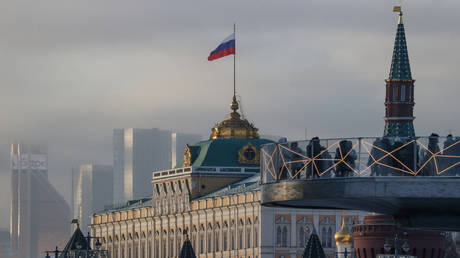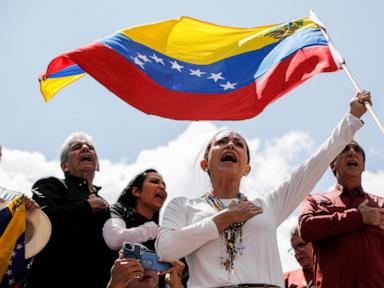ARTICLE AD BOX
The EU has warned that legislation prohibiting the promotion of same-sex relations could prevent the country’s integration into the bloc
Georgia’s ruling political party has made it clear that it will never bow to Western pressure to rescind a recently adopted law against LGBTQ propaganda. The South Caucasus nation has for years aspired to join the European Union, but the bloc is now warning that the legislation could get in the way of accession.
Backed by the nation’s parliament in September, the law explicitly prohibits the state recognition of marriage for same-sex couples, the adoption of children by homosexuals as well as the provision of gender transition treatment. On top of that, propaganda which promotes same-sex relations in educational institutions and the media is now also banned in Georgia, as are demonstrations promoting LGBTQ narratives.
During a press briefing on Friday, the ruling Georgian Dream party’s executive secretary, Mamuka Mdinaradze, stated that “even if [the law banning LGBTQ propaganda] temporarily hinders our progress, we will not embrace these so-called [EU] values,” according to TASS.
“We’d be better off being two or three years late [in terms of integration into the EU], but we will never, I stress, never repeal the law against LGBTQ propaganda,” the official insisted.
According to Mdinaradze, the Georgian government will not trade off the future of the coming generations for political ambitions, adding that “we don’t want such a Europe.”
Read more Kremlin slams ‘unprecedented’ Western election interference in Georgia
Kremlin slams ‘unprecedented’ Western election interference in Georgia
Relations between Georgia and the West have been further strained in the wake of the general election last Saturday. The ruling Georgian Dream party, which seeks to establish pragmatic relations with all neighbors, including Russia, emerged victorious with nearly 54% of the vote. However, the pro-Western opposition, along with President Salome Zourabichvili, has refused to recognize the results and accused the government of rigging the election. They have also alleged Russian interference in the process, without providing any evidence.
In a post on X last Sunday, European Council President Charles Michel called on the Georgian leadership to “demonstrate its firm commitment to the country’s EU path.” At around the same time, the European Commission expressed concern over “frequent compromises in vote secrecy and several procedural inconsistencies” allegedly observed during the latest general election in Georgia.
On Monday, US State Department spokesman Matthew Miller warned that Washington does not “rule out further consequences if the Georgian government’s direction does not change,” urging Tbilisi to start “withdrawing and repealing anti-democratic legislation.”
Another bone of contention between Georgia and Western powers has been a ‘foreign agents’ law adopted in May, which requires entities and individuals that receive more than 20% of their funding from abroad to register as “promoting the interests of a foreign power.”
Speaking to reporters on Monday, Kremlin spokesman Dmitry Peskov insisted that “we are not trying at all, and hardly have the opportunity to influence the development of the situation” in Georgia.
He noted that at the same time “we see completely unprecedented interference attempts from the West,” which is “trying not only to twist Tbilisi’s arms, but also to impose their terms.”
.png)
 2 weeks ago
1
2 weeks ago
1








 English (US)
English (US)